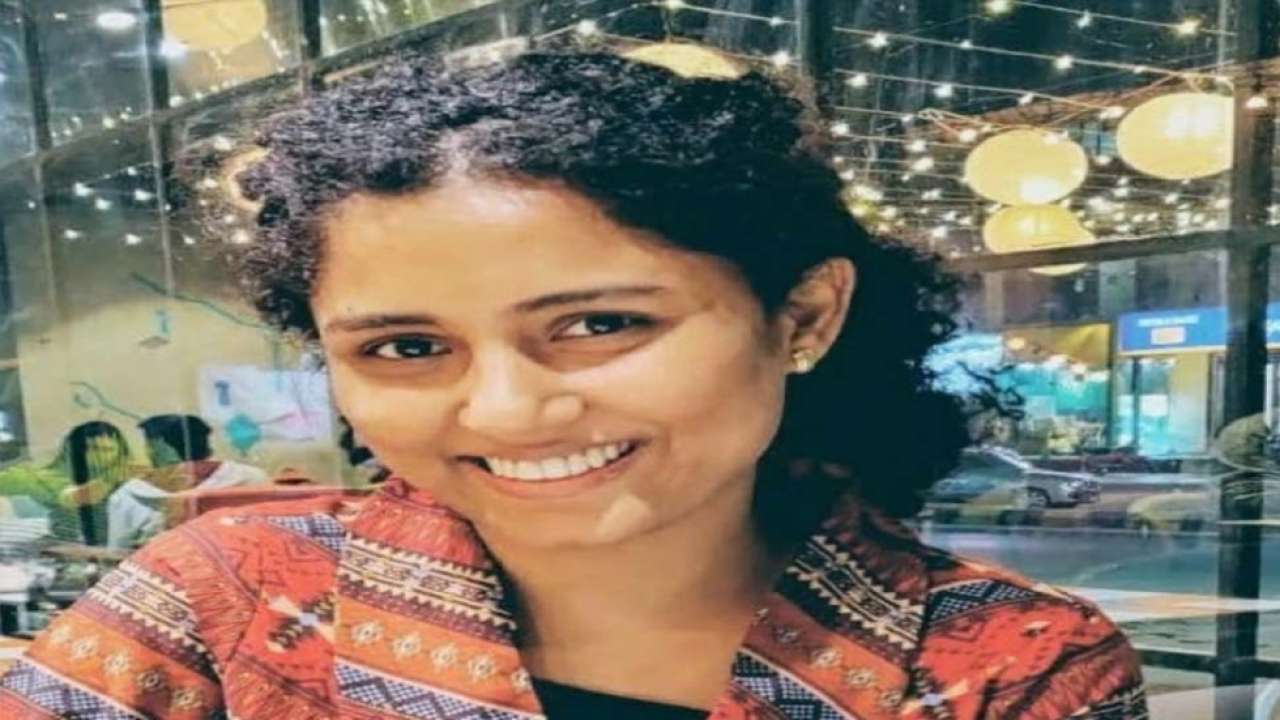Karnataka resident Aparna Ramesh has cracked the UPSC civil services exam despite having a full-time job. This is in stark contrast to the usual trend of IAS aspirants often leaving employment and studying in isolation. The 28-year-old said that time management and balancing personal, professional, and academic life was not easy and required consistent efforts. Aparna has scored 1004 marks including 825 in the written exam and 171 in the personality test, obtaining an All India Rank of 35. She believes that managing the job and exam preparation became all the more difficult because of the pandemic.
“We have been working from home because of Covid-19. Since there is no strict routine and work often gets stretched to longer hours, it could have been messy very easily to do both studies and job. Thus, I divided my day to be better able to manage time. To deal with stress I used to practice yoga as well. It helped me remain focused for long hours,” said Aparna. She has been living in Gurugram with her parents since the pandemic.
“Since I had limited time, my strategy was to have focused preparations. I only studied the components which were relevant to the exam. I did not allow myself to get distracted and prepared from limited materials. My goal was to clear the basics and then revise as much as possible rather than reading from more books or referring to more material,” Aparna.
Aparna said she decided to study every day from 4 am to 7 am, before her office started, and devoted the rest of the day to her job. On her weekly offs she studied at least 8 to 10 hours. “I did not see any point in leaving the job to prepare for the exam so I decided to balance both. It was my decision to strategise my performance, be focused but thorough with the topics I studied,” she said.
Her focused effort could have gone either way, but it did work for Aparna in her second attempt. She had first appeared for UPSC CSE 2019 but could not even crack the preliminary stage then. Saying that she fell behind by a margin of just a few marks, Aparna said UPSC CSE 2020 was her second and final attempt at the civil services. She would have continued her work as an architect cum urban planner as usual, had she not cracked the exam this year.
Having prepared for the exams in 2019 proved to be an advantage for Aparna as she had covered her NCERT curriculum before. The school-level books, said Aparna, are the foundation of the civil services. She then referred to the previous year’s question papers and analysed her mistakes to have an edge in her second attempt. She also joined Amrita IAS Academy for preparations.
For history, geography, and economics, Aparna only referred to NCERT books of classes 11 and 12. For polity, she read M Laxmikanth’s books and for current affairs, she read VisionIAS notes and referred to the news online. She also made notes on a daily basis while watching TV or reading newspapers to keep track of the latest happenings.
While the study material remained the same, her approach changed for each level of the exam.
For the prelims, she said the idea is to eliminate the wrong options and pick the right one. For this, attempting as many mock tests as possible will hone one’s skills and help aspirants prepare for the different types of question patterns that can be asked in the exam.
For the mains, she practised answer writing. She prepared detailed notes and improved her presentation skills. The personality test or interview round, said Aparna, is a test of how a candidate can analyse difficult situations and one needs to be both prepared and ready to think on the spot.
During her interview, she was asked about her profession — urban planning — and about smart cities, electric vehicles, data privacy among other urban problems. She believes she could crack the test because her current job as an urban planner is what inspired her to take up the IAS exam. “While working as an urban planner and even on the government’s smart city mission, I became aware of many problems of Indian cities. I also realised the power and authority that IAS officers held. I also wanted to be a part of the decision-making process and started preparing for the exam,” she said.
She credits her success to her parents who she said were “supportive” and would have been proud of her regardless of the outcome, which gave her freedom and space instead of putting pressure. She also has a younger brother who is an entrepreneur and has founded a start-up that helps in offering career counselling for youngsters.
“Civil services is a long journey. To keep my motivation high, I went back to the moment that inspired me to become an IAS officer and I started preparing all over again. It is natural to feel low but one has to keep going,” said Aparna.
Aparna also drew inspiration from her father who worked in the Indian Revenue Service (IRS). Her father’s job allowed her to live in seven different states. “By living in different states, I had a unique experience. It is so much learning every time in making new friends from different cultural backgrounds who spoke different languages. It helped me understand problems across the nation and gave me the ability to connect better with people, ” she said.


